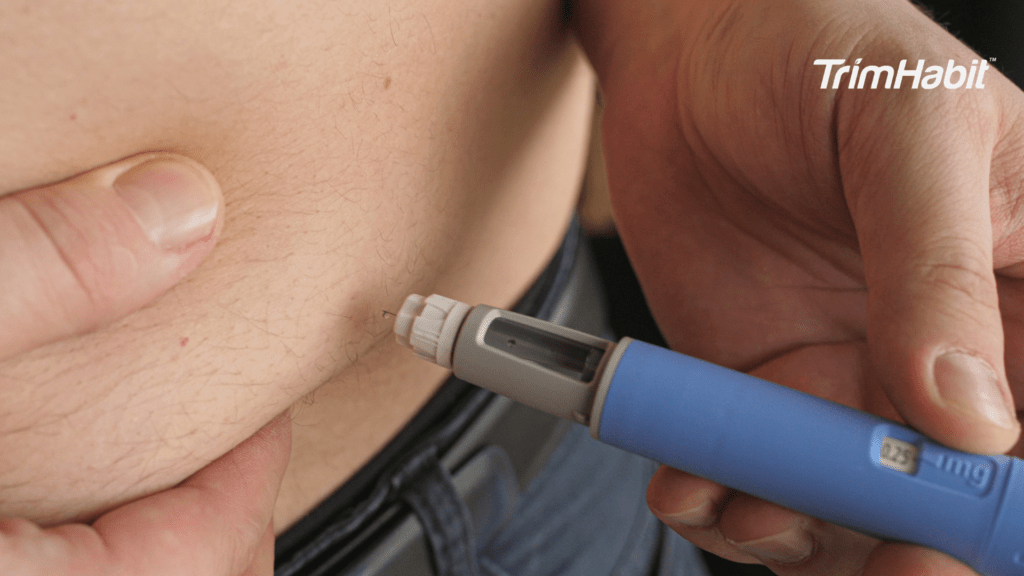Intermittent fasting has various health benefits and can help with fat and total weight loss. Many individuals around the world fast from time to time, but this is usually for religious reasons in which they fast for healing with prayer. Muslims, for example, will fast for half a day during Ramadan, while Catholics will fast on Ash Wednesday and Good Friday.
For millennia, religious rituals have been linked to health and healing. Many diet and fitness trends have their roots in solid science, but the facts often become twisted by the time they reach public acceptance. The benefits are overstated, the dangers are minimized and marketing triumphs over science.
This article will tackle fasting for healing and what are the potential health benefits of fasting for the healing process of the human body.
How Does Intermittent Fasting Work?
You can only eat at certain period of the day if you practice intermittent fasting. When you go several hours without eating, your body depletes its sugar stores and begins to burn fat. This is known as metabolic switching. Intermittent fasting extends the interval during which your body burns through the calories taken at your last meal and then begins to burn fat.
When you’re not eating, you can drink water and zero-calorie beverages like black coffee and tea. And while you can “eat regularly” during your eating periods, that does not mean you can eat anything you want. It is advised to avoid high-calorie junk food, fried meals, and treats1.
Fasting also promotes autophagy, the body’s technique of detoxifying by eliminating damaged cells and replacing them with new ones. This process is essentially a type of internal cannibalism that also improves human health span.
Fasting activates stem cells while decreasing autoimmune cells and CRP (an inflammation marker), which is a substantial advantage for autoimmune disease patients.
Different Types Of Fasting
16/8 Fasting – This is the most usual strategy. It entails eating every day within an eight-hour window and then fasting for 16 hours after your final meal.
5:2 Ratio – This method entails eating five days a week. You limit yourself to a single 500-600 calorie lunch for the next two days.
Fasting for longer periods of time, such as 24 hours, 36 hours, 48 hours, or 72 hours, might be hazardous. If you go too long without eating, your body may respond by storing more fat in response to famine. If you want to fast correctly, research and test the best approaches1.
Here are a few of the most common varitations of fasting:
- Water Fasting – is the practice of consuming only water for a defined period of time.
- Juice Fasting – involves eating vegetable or fruit juice only for a set period of time.
- Intermittent Fasting – intake is limited for a few hours to a few days at a time, with a normal diet resumed on the other days.
- Partial Fasting – for a specific length of time, some foods or beverages, such as processed foods, animal products, or caffeine, are removed from the diet.
- Calorie Restriction – every week, calories are limited for a few days.
Wound Healing Process
Wound healing requires a lot of energy. Although a patient may remain bedridden and immobile for a time following surgery, the body’s caloric demands actually rise rather than decrease.
The wound healing environment and resources have a significant effect on how long wound healing takes. Wound healing also does not occur completely at once; it is a highly sensitive and sophisticated procedure.
Providing your body with essential resources such as liquid collagen and collagen-boosting vitamin C is an excellent way to help you navigate each stage of wound healing safely.
Many doctors and nutritionists prescribe a caloric excess to support the demands of wound healing, with a particular concentration on protein. Protein in your diet can and must be broken down by your body and used in collagen synthesis for wound healing2.
Fasting For Healing
Diet influences your body’s ability to complete practically any task, including healing, which is one of the more labor-intensive ones. In addition, almost everything your body performs can be improved by rationing the proper nutrients in the right amounts. However, part of maintaining a well-rounded, intentional diet is considering what you put into your body as well as what you don’t – or, in this case, when you don’t.
Digesting food is a net energy gain for your body, but clearing out the reserves you already have can be more beneficial at times. While fasting, the body can devote all of its energy to wound healing. In this scenario, fasting may help wounds heal faster2.
Health Benefits Of Fasting For Healing
Fasting has been linked to a variety of health benefits, including weight loss, better blood sugar control, reduced inflammation, rapid wound healing, and improved heart health. It may also provide protection against some diseases such as cancer and neurological illnesses for better health3.
The following are the health benefits of fasting for healing:
1. Reduces Insulin Resistance
Several studies have suggested that fasting may improve blood sugar control, which may be especially beneficial for diabetics.
In fact, one research on ten persons with type 2 diabetes found that intermittent fasting for a short period of time considerably reduced blood sugar levels4. In another 2014 study, it discovered that intermittent fasting and alternate-day fasting were just as efficient at reducing insulin resistance as calorie restriction5.
Reduced insulin resistance can improve your body’s sensitivity to insulin, this, together with the potential blood sugar-lowering effects of fasting, could help keep your blood sugar constant, minimizing blood sugar spikes and crashes3.
2. Helps Fight Inflammation
While acute inflammation is a natural immune response used to help fight infections, chronic inflammation can have major health repercussions.
According to research, inflammation may play a role in the development of chronic illnesses such as heart disease, cancer, and rheumatoid arthritis6. Fasting has been shown in certain studies to help reduce inflammation and promote improved health.
A meta-analysis of 18 research discovered that intermittent fasting could considerably lower levels of C-reactive protein, a measure of inflammation7.
Another small study revealed that adopting intermittent fasting for a year was more successful than a control group at lowering inflammation and some risk factors for heart disease8.
3. May Enhances Heart Health
Heart disease is the leading cause of death worldwide, accounting for around 31.5% of all deaths. One of the most effective methods to minimize your risk of heart disease is to change your food and lifestyle.
According to certain studies, adding fasting into your routine may be very advantageous to your heart health. One study found that, when compared to a control group, alternate-day fasting could lower total cholesterol levels and numerous risk factors for heart disease in adults who are overweight9.
Another study found that alternate-day fasting reduced blood pressure, triglycerides, total cholesterol, and LDL (bad) cholesterol levels considerably10.
4. Boost Mental Function
Fasting can also boost mental clarity and focus. When you fast, your body has less hazardous chemicals circulating through the blood and lymphatic system, which allows you to think more clearly. The energy ordinarily utilized to digest food is accessible for utilization by the brain while fasting.
Because your body takes time to adjust, you might not notice this mental shift until the first several days of a fast. You may get headaches or pain points at the start of the procedure. However, once your body has cleared itself of toxins, your brain has access to a cleaner bloodstream, which results in clearer thoughts, improved memory, and increased sharpness of your other senses1.
5. Healing Rejuvenation
Fasting allows your body to rejuvenate. It dissolves diseased cells, leaving only healthy tissue in its place. There is also obvious redistribution of enough nutrients in the body. While processing and eliminating old tissue, poisons, or undesired materials, the body retains valuable vitamins and minerals1.
Side Effects Of Fasting
Despite the numerous potential health benefits of fasting, it may not be appropriate for everyone. For example, if you have diabetes, fasting can cause severe rises and crashes in your blood sugar levels11.
If you have any underlying health concerns or want to fast for more than 24 hours, it is important to consult a doctor first. Fasting is also not generally advised for older adults, teens, or persons who are underweight without medical supervision11.
To maximize the possible health benefits of fasting, make sure to stay hydrated and enrich your diet with nutrient-dense foods during your eating intervals.
Takeaways
By the numerous processes that are triggered by fasting, it has been linked to a variety of potential health benefits, including weight loss, improved blood sugar control, heart health, brain function, and cancer prevention.
Because of these, fasting may put you in the path of healing. There are numerous various styles of fasting that accommodate practically every lifestyle, ranging from water fasting to intermittent fasting and calorie restriction. Fasting may be beneficial to your health when combined with good food and a healthy lifestyle.









